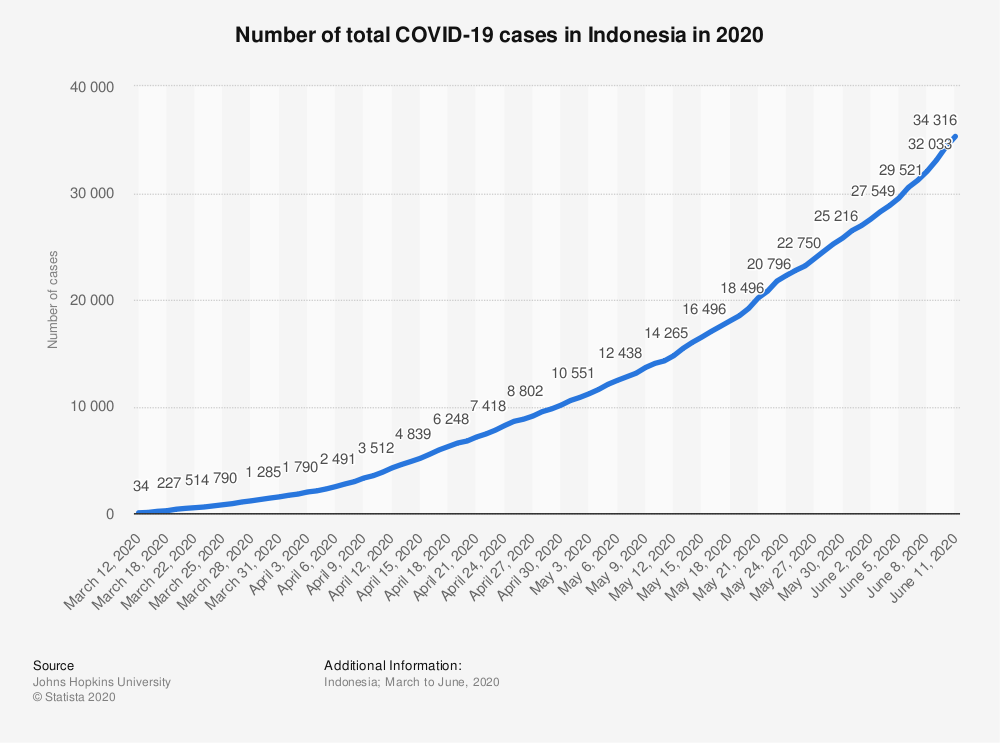Two months after the first COVID-19 case in Indonesia, President Joko Widodo advises Indonesians to ‘embrace’ and live side by side with the coronavirus. “Until we discover the vaccine, we must learn to live in peace with the coronavirus,” said the president in Merdeka Palace, Jakarta (May 7, 2020). With the application of New Normal, Indonesians are able to maintain productivity during the pandemic, with high hopes of reversing the declining economy.
What is the new normal?
Achmad Yurianto, the spokesperson for COVID-19 in Indonesia states that maintaining productivity while keeping ourselves safe from the virus is paramount. Thus, the government has begun to ease up lockdown rules, moving on towards the new normal. The new normal is the way the world adapts to the changes brought by the pandemic; doing day-to-day activities with health protocols that further prevent the spread of the disease. Yurianto also believes that the new normal is the perfect solution to keep morale high, rather than giving up and doing nothing.
Are Indonesians ready for the new normal?
Increasing cases
Some controversies arise as this new system is implemented in Indonesia, the Southeast Asian country with the highest number of cases to date. Dr. Corona Rintawan, Indonesia’s distinguished emergency response expert said that the ‘new normal’ risks a significant increase of infection. Confusion among Indonesians may also rise given that the ‘new normal’ is commonly misunderstood that everything will go back to the way they were before COVID. Despite being largely populated, Indonesia is still very much deficient in terms of testing even though businesses are starting up, schools and religious centres are reopening, entering the ‘new normal’.Â
Even before entering the new normal which fell on June 5, the Ministry of Health reported a 30% rise in cases during the 19-day transition period. Despite the repetitive advice to wear masks while outside and maintaining personal hygiene, locals aren’t disciplined enough to follow these rules. Social distancing rules and a handful of other health protocols aren’t followed while lockdown is eased, making the significant increase of cases no longer surprising to anyone. Apart from that, Lapor COVID-19, a citizen reporting initiative established by journalists and academics, hypothesizes that the real data of cases is double or triple than the amount reported.

Social taboos, stigmas, and irrational views of the pandemic
Lack of discipline isn’t the only cause that hinders Indonesia’s fight against the coronavirus. In smaller towns and areas populated by the ill-informed demographic, the population has a higher tendency to be ignorant towards the pandemic due to social taboos. A large percentage of these people refuse testing and do not abide by health protocols, given that they are scared to be shunned by their peers for having the disease.
For instance, Balinese and Sumatran traders avoid testing despite working in crowded marketplaces, hotspots for the coronavirus. Some villages also refuse funerals for COVID-19 related deaths, halting health workers responsible for burials from entering government-designated cemeteries. In Sulawesi, a religious community forcibly claimed bodies, which were allegedly coronavirus patients, to bury them in a religious fashion instead of following COVID-19 protocols.
Phenomena such as these indicate a strong coronavirus-related stigma that lives among Indonesians. Sulfikar Amir, Nanyang Technological University’s disaster sociologist states that stigma is caused by failure to inform. This means that the government must increase their efforts to educate this nation regarding the coronavirus in a more objective and scientific manner.
Lack of testing
The Ministry of Finance has set a $48 billion COVID-19 stimulus, where $6.3 billion of it is allocated for health care. Despite that relatively significant amount, free testing is not included in the stimulus. Millions of families still have to set aside their personal funds to get tested for COVID, which can be expensive for those of lower income. Conduction of tests are still below the daily set target of 20,000 and these tests are far from accessible, especially in rural areas and for poorer populations.Â
What can we do?
Whether or not Indonesia is ready for the new normal, the new system has been established and we must do our best to keep ourselves safe. The World Health Organization advices everyone to:
- Frequently wash your hands with clean water and soap or alcohol-based sanitizer.
- Avoid touching the eyes, nose, and mouth.
- Maintain physical distance at about 1 meter at the minimum.
- Only leave the house when it’s essential.
- If you must go outside, always wear a mask.
Disclaimer: the views expressed by the author do not necessarily represent the views of The Development Cafe.
References:
https://tirto.id/arti-new-normal-indonesia-tatanan-baru-beradaptasi-dengan-covid-19-fDB3
https://www.kompas.com/tren/read/2020/06/13/121500765/peringatan-who-untuk-indonesia-soal-persiapan-new-normal?page=all
https://www.cnbcindonesia.com/news/20200623170610-4-167467/ironi-kasus-corona-ri-melesat-70-saat-transisi-new-normal
https://www.merdeka.com/peristiwa/kasus-ambil-paksa-jenazah-covid-19-di-sulsel-33-warga-diamankan-5-orang-reaktif.html
https://www.statista.com/graphic/1/1103469/indonesia-covid-19-total-cases.jpg
https://www.statista.com/graphic/1/1103469/indonesia-covid-19-total-cases.jpg

